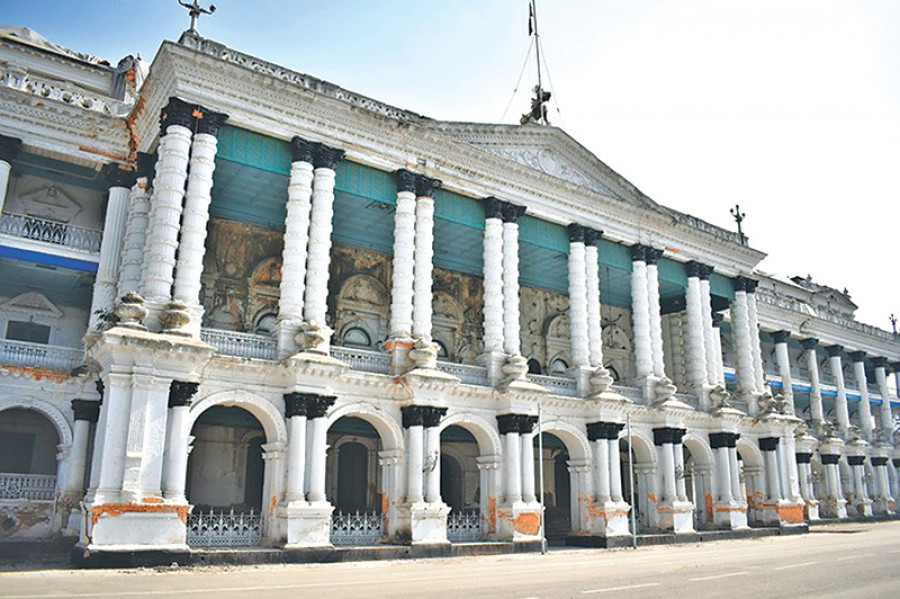Columns
Lost in transition
Political beliefs and actions are driven by whims rather than carefully judged thinking.
Atul K Thakur
While reading journalist Sanjay Upadhya’s book, Backfire in Nepal: How India Lost the Plot to China (Vitasta, 2021), one can ascertain the seriousness of the political fault lines in Nepal. From the angle this book is written, it reconfirms how the decision-making processes in Nepal have been made subservient to the puzzled trilateralism instead of getting shaped independently. Due to the obsession with the positioning of India and China, realpolitik is compelling mass aspirations to get lost in transition. Who should be blamed for this?
It is true that the official establishment in India has its own share of misunderstanding Nepal’s political transition that finally paved the way for China to go many steps further from the soft competition, though the bigger concern remains over the Nepali political classes’ comfortable posture towards such unwelcoming dynamics. It is the new age politics without accountability that mars promising developmental possibilities for Nepal. The institutional processes are misunderstood, and the political culture has still not developed where the successes or failures of decisions are attributed to no outsiders.
Natural ally
Noticeably, China’s hyper interest in Nepal is unnatural, and it gets traction as Nepal’s political classes’ are not counting on people and their aspirations. When it comes to India, it is organically linked to Nepal. Be it close state cooperation or unique socio-cultural ties on the people front, there is a past which necessitates having an engaging present and future. It is unlikely that China can still claim to be a natural ally like India is to Nepal. A closer look at its promises and deliveries is enough to disenchant any Nepali. However, in the official establishment of Kathmandu, the Darwinian survivalist spirit defeats truth and logic.
Has India lost the plot to China in Nepal? Going deep into it, one really finds it pitiful the way public discourses are being built on it. Ideally, what should be discussed is the precariousness of Nepal as a young democracy with no accountability system in place. It would be wrong to blame KP Sharma Oli alone for an avoidable state of affairs. In fact, he has been just one of the factors besides the political ranks across lines. Over the years, he has made a good fortune for himself and is now so well-placed, even the constitutional processes are belittled before him.
Even with republicanism, secularism and federalism, political beliefs and actions continue to be driven by whims rather than carefully judged thinking. In a bid to make the people believe that existential challenges are not as pressing as keeping ‘India & China’ in the middle of a crisis from Kathmandu’s streets to Parliament, the political leadership in Nepal is doing a big disservice to the country and the people. More than India, the people of Nepal have been defeated in the political quagmire. China’s geo-strategic orientation in Nepal clearly found traction with the inability of the top Nepali leaders to differentiate between the matters of home and the world, and thus not opening the turf to a dangerous geostrategic rivalry in the homeland.
Without sufficient homework, it is surely undeserving to be in the big powers’ league and get exposure to bruised egos. Amidst an unprecedented crisis with the coronavirus, prolonged lockdown and severely contracted economy, the Oli government’s move to create hurdles against free movement near the border points and unusual suspension of flights to India were unsavoury acts. When the people on either side can’t do without each other, it is unfortunate how the government offered insensitivity when handholding was much needed.
A country with immense possibilities, Nepal, and its people should get development in place of a divisive narrative. In Kathmandu’s political theatre, democracy is a misunderstood system where it is continuously confused with favourable electoral figures and no agenda. It would be a mistake to see factionalism merely literally: It is a virtue and escape route for incompetent politicians who are doing the gravest injustice to the people by being in the fray. With the promises made in the middle of the last decade, Nepal was supposed to be on a path of peace and progress. The ground reality is strikingly different when a transitional government is involved with an armed outfit headed by Netra Bikram Chand and is also giving signals for a closer association with the royalists. A juxtaposition of these two images is well sufficient to know how badly the people’s aspirations have been killed, and with it, the ‘hope’ also lost in transition.
The intellectual community in Nepal must speak and write more about the lost opportunities, wasted sacrifices and demolished institutions and cynical political moves to overshadow all these under the garb of playing the India and China cards. In maintaining international relations too, especially in the neighbourhood, due consideration should be given to people diplomacy. Lately, any systemic transition should not sacrifice only the interest of the masses, along with the art of survival, the discipline of politics also earmarks commitment for a defined territory and people.
Statecraft not doing well
With no king or the institution of monarchy to blame, the movers and shakers of Nepali politics should think about the statecraft that is not doing well in Nepal’s own interest. The country’s interest lies in downsizing personification, calibrating all-round prospects of development and making the system participatory. By entering into inclusive developmental processes, giving industrial growth its due and not mixing the policies of the home and the world will help Nepal realise its full potential.
With the present round of chaos, Nepal is again at a crossroads. People have every right to be disenchanted with the kind of democracy they have. Still, there can’t be an alternative to democracy. Only time will tell how Oli moves forward under the rising clamour for a constitutional monarchy. As of now, his political reconciliation plan seems to be not a simple plan of action. Of late, what matters is accountability in the system. This is something clearly missing in the present round of painful transition. The lost ground must be recovered.




 8.26°C Kathmandu
8.26°C Kathmandu















